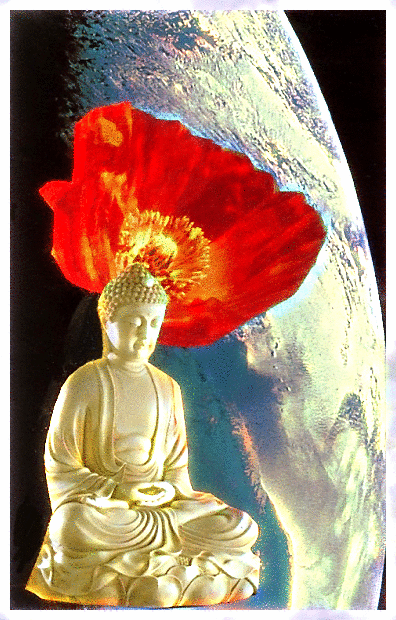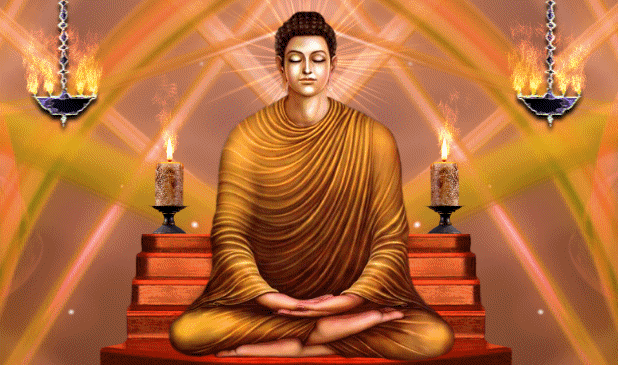Posted by: site admin @ 9:33 pm
𝓛𝓔𝓢𝓢𝓞𝓝 4133 Tue 26 Oct 2021

Prapanchmay karunge.” (We will make the whole world Prabuddha Prapanch
generating energy in the human body available ‘for the price of a coffee
a day’ a Stunning anti-ageing breakthrough could see humans live to 150
years and regenerate organ.New process has been found by Harvard
Professor David Sinclair and researchers from the University of New
South Wales, involving cell reprogramming.
to the University of Singapore survey/review based on 131 countries.
From June 18, world will be 100% free and happy from December 8th. Their
predictions about Italy and Spain fit exactly.
Maker of COVID
Tests Says Pandemic is Biggest Hoax Ever Perpetrated It is like a blind
man searching for a black cat in a dark room which is not there.
WORLD WILL BE FREE FROM HOAX - STRENGTHENING THE TRUST FOR BEST OF HEALTH -SINGAPORE UNIVERSITY SURVEY
 Online Positive Universal Prabuddha Intellectuals Convention.
Online Positive Universal Prabuddha Intellectuals Convention.




After Bath Practice Patanjali Yogic Meditation From 04:00 AM to 05:00 AM at
𝙆𝙪𝙨𝙝𝙞𝙣𝙖𝙧𝙖 𝙉𝙄𝘽𝘽Ā𝙉𝘼 𝘽𝙃𝙐𝙈𝙄 𝙋𝙖𝙜𝙤𝙙𝙖
18𝙛𝙩 𝘿𝙞𝙖. 𝙖 3𝘿 360 𝙙𝙚𝙜𝙧𝙚𝙚 𝙘𝙞𝙧𝙘𝙪𝙡𝙖𝙧 𝙋𝙖𝙜𝙤𝙙𝙖 𝙖𝙩
𝙒𝙝𝙞𝙩𝙚 𝙃𝙤𝙢𝙚,
668 5𝙩𝙝 𝘼 𝙈𝙖𝙞𝙣 𝙍𝙤𝙖𝙙,
8𝙩𝙝 𝘾𝙧𝙤𝙨𝙨, 𝙃𝘼𝙇 𝙄𝙄𝙄 𝙎𝙩𝙖𝙜𝙚,
𝙋𝙪𝙣𝙞𝙮𝙖 𝘽𝙃𝙐𝙈𝙄 𝘽𝙚𝙣𝙜𝙖𝙡𝙪𝙧𝙪,
𝙈𝙖𝙜𝙖𝙙𝙝𝙞 𝙆𝙖𝙧𝙣𝙖𝙩𝙖𝙠𝙖,
𝙋𝙧𝙖𝙗𝙪𝙙𝙙𝙝𝙖 𝘽𝙝𝙖𝙧𝙖𝙩 𝙄𝙣𝙩𝙚𝙧𝙣𝙖𝙩𝙞𝙤𝙣𝙖𝙡

𝙗𝙪𝙙𝙙𝙝𝙖𝙨𝙖𝙞𝙙2𝙪𝙨@𝙜𝙢𝙖𝙞𝙡.𝙘𝙤𝙢
𝙟𝙘𝙨4𝙚𝙫𝙚𝙧@𝙤𝙪𝙩𝙡𝙤𝙤𝙠.𝙘𝙤𝙢
𝙟𝙘𝙝𝙖𝙣𝙙𝙧𝙖𝙨𝙚𝙠𝙝𝙖𝙧𝙖𝙣@𝙮𝙖𝙝𝙤𝙤.𝙘𝙤𝙢
080-25203792
9449260443
9449835875
Spread the Words of Buddha from
𝙝𝙩𝙩𝙥://𝙨𝙖𝙧𝙫𝙖𝙟𝙖𝙣.𝙖𝙢𝙗𝙚𝙙𝙠𝙖𝙧.𝙤𝙧𝙜, WhatApp, Telegram,Facebook, Twitter, more than 5000 Emails.
Practicing Mindful Swimming at Dolphin Aquatics at Halasuru from 05:30 AM to 07:00 AM























- EASY FOR A 7 YEARS OLD BOY TO UNDERSTAND
BUT DIFFICULT FOR A 70 YEARS OLD MAN TO PRACTICE !
-
56) Classical Kazakh-Классикалық қазақ,
1,53-55Акарабағашта Пеяла, классикалық қазақ-классикалық Қазақ- Саусағайдың уақыты үшін де -Егер
саусақтың уақытында болса да, Бхиккху Бхикххус іздесіп, Ізгі ниетпен
ойлайды, ол гудвиллді ойлайды, ол Бхикху деп атайды, ол Бхикху деп
аталады, ол жһар жоқ, ол мұғалімнің тәліміне сәйкес келмейтін, оның
нұсқауы бойынша әрекет етеді, Кім елдің садақа тағамдарын бекер
тамақтандырмайды.
-
57) Classical Khmer- ខ្មែរបុរាណ,
លេខ 1.53-55Accharāsaṅghālaក្នុងបុរាណខ្មែរ- សូម្បីតែសម្រាប់ពេលវេលានៃការខ្ទាស់ម្រាមដៃ -ប្រសិនបើសូម្បីតែសម្រាប់ពេលវេលានៃការខ្ទាស់ម្រាមដៃ,
Bhikkhus, ការដេញតាម Bhikkhu, មានការរីកចម្រើន, គិតថាចិត្តល្អ,
គាត់ត្រូវបានគេហៅថា bhikkhu
ដែលមិនគោរពតាមការបង្រៀនរបស់គ្រូដែលធ្វើសកម្មភាពស្របតាមការណែនាំរបស់ទ្រង់។
ហើយអ្នកដែលមិនបរិភោគអាហារដែលមានទានរបស់ប្រទេសនេះដោយឥតប្រយោជន៍អ្វីទៀតទេដូច្នេះអ្នកដែលហាត់វាញឹកញាប់!
-
58) Classical Kinyarwanda -
1.53-55AnthharāsaṅghghGhāta Peyyāla muri Classicand Kinyarwand- Ndetse mugihe cyurutokiNiba
no mu gihe cy’urutoki Snap, Bhikkhus, akurikirana ahikkhu, atekereza
neza, atekereza ku byigisha kwa mwarimu, abahiriza inyigisho za mwarimu,
akora akurikije amabwiriza ye, Kandi ninde utarya ibiryo byangiza
igihugu kubusa. Noneho, ababikora kenshi!
-
59) Classical Korean-고전 한국어,
1.53-55.고전적인 한국어 고전의 Accharāsańghāta Peyyāla- 손가락 스냅의 시간조차도 -손가락
스냅의 시간조차도, Bhikkhus는 Bhikkhu가 영업권의 마음을 추구하고, 선생님의 가르침을 준수하는 Jhāna가없는
Bhikkhu라고 불리며, 그의 교육에 따르면, 그리고 헛된 나라의 자선 음식을 먹지 않는 사람은 누가 훨씬 더 많이 먹지
않습니다. 그럼, 자주 그것을 연습하는 사람들!
-
60) Classical Kurdish (Kurmanji)-Kurdî (Kurmancî),
1,53-55Accharāsaṅghāta Peyyāla di Kurdish Kurdish (Kurmancî) -Kurdî (Kurmancî)- Hîn jî ji bo dema tiliya tilikê -Heke
di heman demê de ji bo dema tiliyek, Bhikkhus, bhikkhu, pêşwazî dike,
hişê xwedêgiravî, yê ku li gorî hînkirina mamoste ye, yê ku li gorî
hînkirina wî tevdigere, dihesibîne, Who kî ku ji ber ku alîkariya welêt
di vain de xwarina welêt nagire.
-
61) Classical Kyrgyz-Классикалык Кыргыз,
1.53-55Accharāsaṅghāta peyāla in Classic- Ал тургай, манжаЭгерде
манжанын сөөмөйү үчүн, Бхикху, Бхикхху, жакшы ниет акылын өрчүтсе, анда
ал өзүнүн насааттыгына ылайык, мугалимдин окутуучусуна кимди айткан
Бхикху деп аталат Өлкөнүн тырышуусун эч качан жебей, бекер тамактанбайт.
-
62) Classical Lao-ຄລາສສິກລາວ,
A 1.53-53-55AccharāsaṅgtaPeyyālaໃນຄລາສສິກລາວ - ການນໍາໃຊ້ພາສາລາວ- ເຖິງແມ່ນວ່າສໍາລັບເວລາຂອງນິ້ວມື -ຖ້າເຖິງແມ່ນວ່າໃນເວລາຂອງນິ້ວມື,
Bhikkhus, ການພັດທະນາຂອງ Bhikkhu, ລາວໄດ້ຖືກເອີ້ນວ່າ Jhikkhu
ຜູ້ທີ່ປະຕິບັດຕາມຄໍາສອນຂອງຄູ, ຜູ້ທີ່ເຮັດຕາມຄໍາແນະນໍາຂອງລາວ,
ແລະຜູ້ທີ່ບໍ່ໄດ້ກິນອາຫານຂອງປະເທດໃນປະເທດທີ່ບໍ່ມີປະໂຫຍດ.
-
63) Classical Latin-LXII) Classical Latin,
An 1.53-55ACCHARĀSAṅGHāta Peyyāāla in Classical Latin-LXII) Classical Latin- Etiam pro tempore digitus Snap -Si
etiam pro tempore digitus disrumpam, Bhikkhus, Bhikkhu persequitur,
develops, considerat mentem benevolentiam, quod dicitur a Bhikkhu qui
non expers de Jhāna, qui obducit cum doctorem, qui secundum disciplinam,
qui secundum doctrinam suam Et qui non comedunt in altis cibo
fromyer.How multo magis, tunc qui faciunt frequenter? -
64) Classical Latvian-Klasiskā latviešu valoda,
-
1,53-55Accharāsaṅghāta Peyyāla klasiskā latviešu-klašaukā latviešu valodā- pat pirksta snap -Ja
pat brīdī pirkstu snap, bhikkhus, bhikkhu veic, attīstās, uzskata par
labas gribas prātu, viņš tiek saukts par Bhikku, kurš nav bez Jhāna,
kurš atbilst skolotāja mācībām, kas darbojas saskaņā ar viņa
instrukciju, un kurš neēd valsts almers pārtiku vain.how daudz vairāk,
tad tie, kas praktizē to bieži!
-
65) Classical Lithuanian-Klasikinė lietuvių kalba,
1.53-55.Accharāsaṅghāta Peyyāla klasikiniame lietuvių-klasikinėje Lietuvių kalba- net ir piršto laikui -Jei
net ir už piršto, Bhikkhus, Bhikkhu siekia, vystosi, mano prestižo
protas, jis vadinamas bhikkhu, kuris nėra beuoid Jhāna, kuris laikosi
mokytojo mokymo, kuris veikia pagal jo nurodymus, Ir kas nevalgo šalies
alms maisto veltui.Kaip daug daugiau, tuos, kurie tai dažnai
praktikuoja!\
-
66) Classical Luxembourgish-Klassesch Lëtzebuergesch,
Eng 1,53-55Aästhrāssaṅghāta pyyyāla a klassescher Lëtzebuerger Lëtzebuerger Likase Lëtzebuergesch- Och fir d’Zäit vun engem Fanger Schnapp -Wann
och fir d’Zäit vun engem Fanger Snap, bhikkhus, e bhikkhu Verfollegung,
entwéckelt, berécksiichtegt e Geescht vu Wëllen, hien nennt een Bhikkhu
deen net de Bhikkhu huet, deen net de BHASSID ‘benotzt, déi entsprécht
An dat, dass d’Sonne vun der Land net vill iesse méi näichent méi 00,
wou, déi vill méi éieren, déi se sinn!
-
67) Classical Macedonian-Класичен македонски,
1.53-55.ACCARASAṅGHāta peyyāla во класичен македонски-класичен македонски- дури и за време на прст предвремени -Ако
дури и за време на прстот Snap, Bhikkhus, Bhikkhu се стреми, се
развива, смета на умот на добра волја, тој се нарекува Bhikkhu кој не е
лишен од Џана, кој е во согласност со наставката на наставникот, кој
делува според неговата инструкција, И кој не јаде храна за милост на
земјата залудно. Колку повеќе, тогаш, оние кои често го практикуваат!
-
68) Classical Malagasy,класичен малгашки,
1.53-55Accharāsaṅghāata peyyāla amin’ny fiteny anglisy, Класичен малгашки- na dia amin’ny fotoana fanoratana rantsantanana aza -Raha
dia ny fotoana ny rantsan hanaikitra, bhikkhus, ny bhikkhu manenjika,
dia manangana, mihevitra ny saina ny fankasitrahana, izy dia antsoina
hoe ny bhikkhu izay tsy Mila asehontsika amin’ny jhāna, izay mifanaraka
amin’ny Mpampianatra ny fampianarana, izay miasa araka ny fananarany
azy, Ary iza no tsy mihinana ny fiantran’ny firenena foana.
-
69) Classical Malay-Melayu Klasik,
Satu 1.53-55.Accharāsaṅghāta Peyyāla dalam Bahasa Melayu Klasik Klasik- Walaupun untuk masa snap jari -Sekiranya
untuk masa snap jari, Bhikkhu, seorang Bhikkhu mengejar, membangun,
menganggap minda muhibah, dia dipanggil Bhikkhu yang tidak mempunyai
Jhāna, yang mematuhi pengajaran guru, yang bertindak menurut
pengajarannya, Dan siapa yang tidak makan makanan sedekah negara dengan
sia-sia. Berapa banyak lagi, maka, mereka yang mengamalkannya dengan
kerap!
-
70) Classical Malayalam-ക്ലാസിക്കൽ മലയാളം,
1.53-55ക്ലാസിക്കൽ മലയാളത്തിൽ ACCHARāSAṅHAHATHATHATHATHATHATHATHALA-- ഒരു വിരൽ സ്നാപ്പിന്റെ സമയത്തേക്ക് പോലും -ഒരു
ഫിംഗർ സ്നാപ്പിന്റെ സമയത്തേക്ക് പോലും, ഭീഖുവിന്റെ പേരുകൾ പോലും
സദ്വൃക്ഷത്തിന്റെ മനസ്സിനെ പരിഗണിക്കുന്നുവെങ്കിൽ, അദ്ദേഹം തന്റെ
നിർദ്ദേശമനുസരിച്ച് പ്രവർത്തിക്കുന്ന ടീച്ചറുടെ അനിഷ്ടാംഗം, ആരാണ്
രാജ്യത്തെ ദാനധർമ്മം ഭക്ഷിക്കാത്തത് വെറുതെ ഭക്ഷണം കഴിക്കാത്തത്, അതിൽ
കൂടുതൽ പ്രായോഗികവർക്കുള്ളവർ എത്രത്തോളം! -
71) Classical Maltese-Klassiku Malti,
1.53-55.Accharāsaṅghāta peyyāla fil-klassiku Malti-Klassiku Malti- Anke għall-ħin ta ’swaba’ -Jekk
anke għall-ħin ta ’swaba snap, bhikkhus, isegwu Bhikkhu, tiżviluppa,
iqis moħħ ta’ avvjament, huwa msejjaħ Bhikkhu li ma jkunx nieqes minn
Jhāna, li jikkonforma mat-tagħlim tal-għalliem, li jaġixxi skond
l-istruzzjoni tiegħu, U min ma jiekolx l-ikel ta ‘l-Alms tal-pajjiż
f’Vain.How ħafna iktar, allura, dawk li jipprattikaw spiss! -
72) Classical Maori-Maori Maori,
-
mo te wa o te maihao Snap, Bhikkhus, e whai ana i te Bhikkhu, e kii ana
ko Bhikkhu, e kii ana ko Jhnāna, e whakaae ana ki tana ako. a ko wai e
kore e kai i nga kai a te whenua. Ae ra, ko te hunga e mahi pinepine
ana!
बोटांच्या स्नॅपच्या काळासाठी, भिक्खस, भिक्खुचा पाठपुरावा, सद्भावना एक
मन मानतो, त्याला भिकुह म्हणतात, जो या भाषणाचा नाही, जो शिक्षकांच्या
शिकवणीचे पालन करतो, जो त्याच्या शिकवणीनुसार कार्य करतो, आणि कोण देशाचे
भक्षक अन्न खाऊ शकत नाही. तर कितीतरी वारंवार अभ्यास करतात!
-
74) Classical Mongolian-Сонгодог Монгол,
1.53-55 -
хормын үед Бхикхус, Бхикхус, Бакхху нарыг хөгжүүлэх, хөгжүүлэх, мөн улс
орныхоо хоолыг дэмий хоосон хооллодоггүй. Хэрхэн дадлага хийдэг хүмүүс,
дараа нь дадлага хийдэг хүмүүс!
အဘယ်သူသည်အချည်းနှီးသောအစာကိုအစာမစားတတ်။
-

- Verse 112. The Person Of Effort Is Worthy
Though one should live a hundred years lazy, of little effort, yet better is life for a single day strongly making effort.
Explanation:
A single day’s life of a wise person who is capable of strenuous
effort, is nobler than even a hundred years of life of an individual who
is lazy, incapable of making an effort and is wanting in initiative.The Dhammapada: Verses and Stories
Dhammapada
Verse 112
Sappadasatthera VatthuYo ca vassasatam jive
kusito1 hinaviriyo
ekaham jivitam seyyo
viriyamarabhato dalham.Verse
112: Better than a hundred years in the life of a person who is idle
and inactive, is a day in the life of one who makes a zealous and
strenuous effort (in Tranquillity and Insight Development Practice).
1. kusito: an idle person; according to the Commentary, an idle person is one who passes his time only in evil thoughts.
The Story of Thera Sappadasa
While residing at the Jetavana monastery, the Buddha uttered Verse (112) of this book, with reference to Thera Sappadasa.
Once
a bhikkhu was not feeling happy with the life of a bhikkhu; at the same
time he felt that it would be improper and humiliating for him to
return to the life of a householder. So he thought it would be better to
die. So thinking, on one occasion, he put his hand into a pot where
there was a snake but the snake did not bite him. This was because in a
past existence the snake was a slave and the bhikkhu was his master.
Because of this incident the bhikkhu was known as Thera Sappadasa. On
another occasion, Thera Sappadasa took a razor to cut his throat; but as
he placed the razor on his throat he reflected on the purity of his
morality practice throughout his life as a bhikkhu and his whole body
was suffused with delightful satisfaction (piti) and bliss (sukha).
Then detaching himself from piti, he directed his mind to the
development of Insight Knowledge and soon attained arahatship, and he
returned to the monastery.On
arrival at the monastery, other bhikkhus asked him where he had been
and why he took the knife along with him. When he told them about his
intention to take his life, they asked him why he did not do so. He
answered, “I originally intended to cut my throat with this knife, but I
have now cut off all moral defilements with the knife of Insight
Knowledge.” The bhikkhus did not believe him; so they went to the Buddha
and asked. “Venerable Sir, this bhikkhu claims, that he has attained
arahatship as he was putting the knife to his throat to kill himself. Is
it possible to attain Arahatta Magga within such a short time?” To them
the Buddha said, “Bhikkhus! Yes, it is possible; for one who is
zealous and strenuous in the practice of Tranquillity and Insight
Development, arahatship can be gained in an instant. As the bhikkhu
walks in meditation, he can attain arahatship even before his raised
foot touches the ground.”
Then the Buddha spoke in verse as follows:
Verse
112: Better than a hundred years in the life of a person who is idle
and inactive, is a day in the life of one who makes a zealous and
strenuous effort (in Tranquillity and Insight Development Practice).-


-





 How many languages are there in the world?
How many languages are there in the world? -
-
-
7,117 languages are spoken today.
That number is
constantly in flux, because we’re learning more about the world’s
languages every day. And beyond that, the languages themselves are in
flux. They’re living and dynamic, spoken by communities whose lives are
shaped by our rapidly changing world. This is a fragile time: Roughly 0%
of languages are now endangered, often with less than 1,000 speakers
remaining. Meanwhile, just 23 languages account for more than half the
world’s population.
When
a just born baby is kept isolated without anyone communicating with the
baby, after a few days it will speak and human natural (Prakrit)
language known as Classical Magahi Magadhi/Classical Chandaso
language/Magadhi Prakrit,Classical Hela Basa (Hela Language),Classical
Pāḷi which are the same. Buddha spoke in Magadhi. All the 7,139
languages and dialects are off shoot of Classical Magahi Magadhi. Hence
all of them are Classical in nature (Prakrit) of Human Beings, just like
all other living speices have their own natural languages for
communication. 117 languages are translated by https://translate.google.comin -
the price of a coffee a day, can humans soon live up to 150 years?
Medical researchers have been on the lookout for techniques to extend
human longevity for a long time. New process has been found by Harvard
Professor David Sinclair and researchers from the University of New
South Wales, involving cell reprogramming.
Sinclair, is a Professor at the School of Medicine at the University of
New South Wales (UNSW), Sydney. He is also a Professor in the Genetic
Department at Harvard Medical School, Boston, Co-Director of the Paul F.
Glenn Laboratories for the Biological Mechanisms of Aging.
to Dr Sinclair, who is the co-founder and co-chief editor of the
scientific journal Aging, human organs could be regenerated using the
technique. It could even paralysis sufferers to move again, he says.
Human trials are due within two years.
new technique that the research team found out involves the molecule
Nicotinamide Adenine Dinucleotide (NAD), which plays a role in
generating energy in the human body.
Sinclair, who claims to have tried it out using his own molecule, and
found that his biological age has dropped by 24 years after taking the
pill.
professor also said his sister-in-law was now fertile again after
taking the treatment, despite having started to transition into
menopause in her 40s.
buying (NAD+) Sublingual 15 Grams at $62.00 which plays a role in
generating energy in the human body available ‘for the price of a coffee
a day’ a Stunning anti-ageing breakthrough could see humans live to 150
years and regenerate organ.

humans, death in old age has always been life’s great punchline. It
takes 70 or 80 years to get really good at the whole business of being
alive, and no sooner does that happen than mortality b…
|
|
